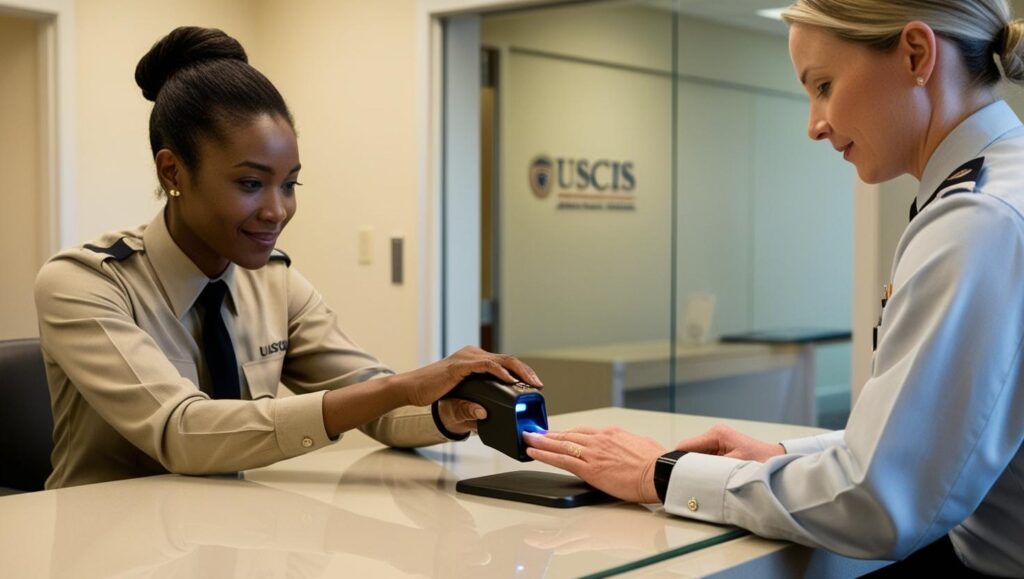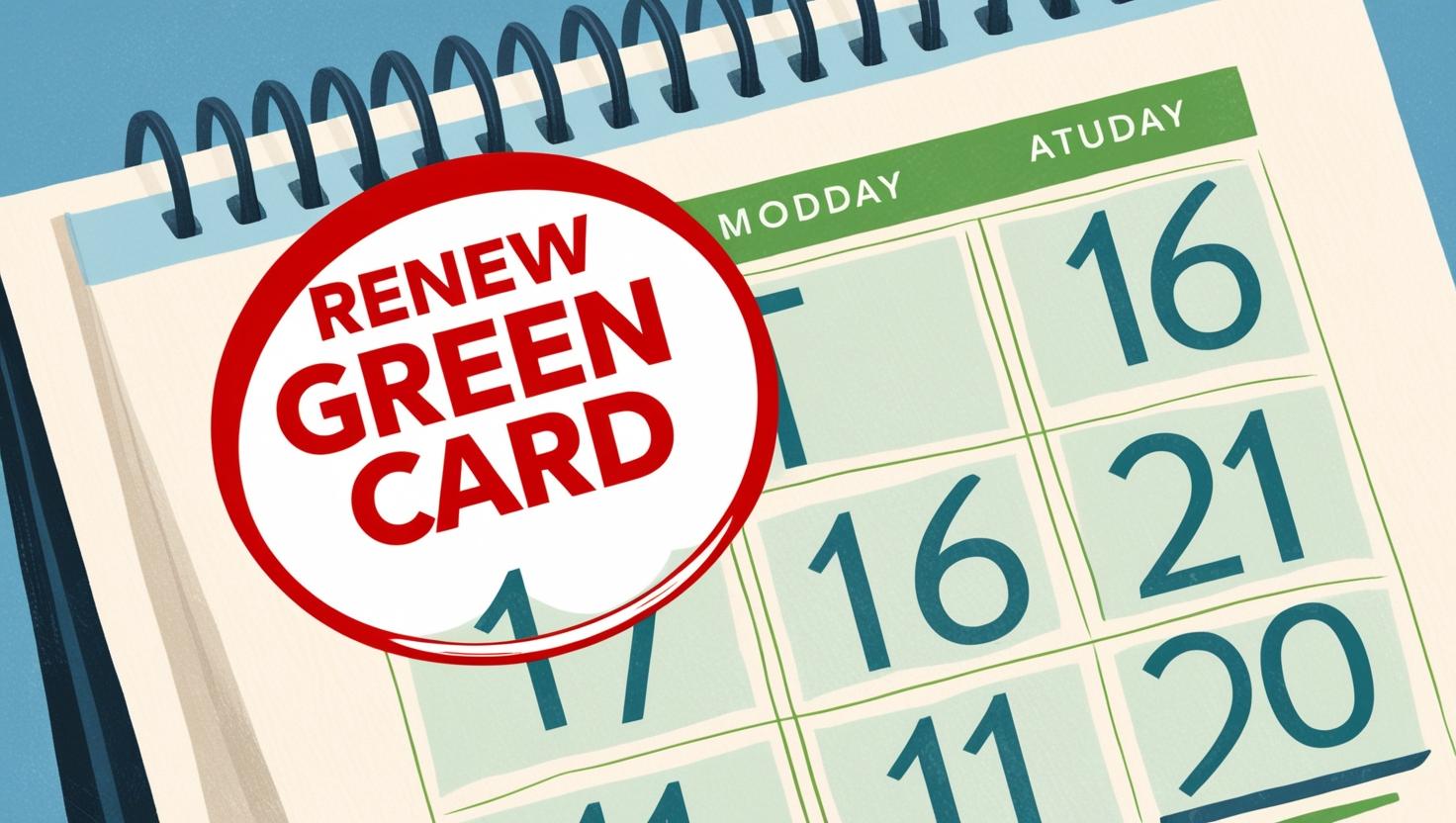Imagine the relief of holding your renewed permanent resident card. It’s a symbol of your continued journey in the United States. As a lawful permanent resident, renewing your green card is key to keeping your status and rights.
The process can seem daunting, with many documents and deadlines to remember. In this guide, we’ll cover the essential documents, filing options, and tips for a smooth renewal. With a 9-month average processing time and fees from $415 to $465, being prepared is crucial.
This guide is for both first-time and experienced renewers. It will help you navigate the Form I-90 filing process confidently. Let’s start this journey together and keep your permanent residency secure.
Understanding Green Card Renewal Basics
As a permanent resident in the United States, your green card proves your legal status. It lets you live and work here forever. But, these cards expire every 10 years for most people. For those who got their green card through marriage, the first card is good for 3 years, and then renewals last 10 years.
What is a Green Card and Why Does it Need Renewal
A green card, or Permanent Resident Card, lets foreign nationals live in the U.S. permanently. It must be renewed every 10 years to keep your legal status. This renewal also updates your biometric information and checks if you’re still following immigration laws. If you don’t renew, your green card could expire, causing problems with your status.
When to Start the Renewal Process
Start the renewal process at least six months before your green card expires. This gives USCIS enough time to process your application. Waiting too long can cause delays and problems with your legal status.
Legal Requirements and Deadlines
To renew your green card, you must still be a permanent resident and have a card that’s going to expire soon. You also can’t be in removal proceedings or have conditional status. The cost for Form I-90, Application to Replace Permanent Resident Card, is $455. There’s an extra $85 for the biometrics appointment. Not renewing on time or not meeting USCIS requirements can deny your application and affect your immigration status.

What Documents Do I Need to Renew My Green Card
Renewing your green card is a big deal. You need to pay close attention to the details. The first thing you must have is Form I-90, Application to Replace Permanent Resident Card. This form is the heart of your renewal application.
You also need to gather other important documents. These include a photocopy of your current green card’s front and back. You’ll also need a copy of your passport’s biographic page and proof of living in the U.S., like tax returns or rental agreements. USCIS might ask for two passport-style photos that fit their standards.
You might have to give more documents based on your situation. It’s wise to talk to an immigration lawyer. They can help make sure your application is right and complete. Getting everything ready and submitting it correctly is key to a smooth renewal.
Green Card Renewal Filing Options and Fees
Renewing your green card is key to keeping your legal status in the United States. The U.S. Citizenship and Immigration Services (USCIS) has several filing options. Each option has its own fees and rules.
Online vs Paper Filing Methods
The online renewal process is very convenient. You can use the USCIS online platform to fill out and submit your application easily. If you like a more traditional way, you can choose the paper application method. This might be needed in some cases.
Current Filing Fees and Payment Options
As of January 2025, renewing your green card costs $465 for paper filing and $415 for online filing. USCIS accepts many payment methods. You can pay with credit cards, money orders, or checks. This gives you options to manage the costs.
Fee Exemption Categories
You might be eligible for fee waivers or exemptions. This is true if you’re filing because of USCIS errors or if you’ve never gotten a green card. It’s crucial to check the USCIS guidelines to see if you qualify for any fee breaks.
Always check the USCIS website for the latest on filing fees, online and paper options, and fee waivers. Knowing your options and costs helps you make the right choice. This ensures a smooth renewal process for your green card.
Common Mistakes and Processing Delays to Avoid
Renewing your green card can be tricky. Knowing the common mistakes can help you avoid application errors, USCIS delays, or even rejection. By understanding these issues, you can make sure your renewal goes smoothly and on time.
One big mistake is sending in incomplete forms or missing documents. This can really slow down the USCIS. They might ask for more info, which delays things. Make sure you’ve included all needed documents, like proof of income and employment status.
Another mistake is not renewing on time. It’s best to start the process six months before your green card expires. This way, you avoid delays and keep your immigration status intact.
Expedited processing might be an option if you have urgent plans. But, keep in mind, it’s not guaranteed. USCIS decides based on your situation.
Being proactive and careful can greatly improve your renewal chances. Knowing about USCIS processing times helps a lot. Stay informed and follow the right steps to avoid common problems and have a smooth experience.

Conclusion
Renewing your green card on time is key to keeping your legal status in the U.S. It lets you keep working, traveling, and getting social benefits. Knowing how to renew your green card helps you avoid problems.
Keep up with USCIS news and think about getting help from an immigration lawyer. This is especially true for tricky cases. Renewing your green card on time helps you follow immigration laws and keeps your future opportunities safe in the U.S.
Renewing your green card before it runs out shows you’re serious about your permanent residency. By staying on top of your green card renewal, you can keep enjoying the perks of being a permanent resident in the U.S. If you know somebody opting to self petition through EB1A or EB2-NIW, Green Card For Alien could help them with all their letter writing requirements.
FAQs
What documents do I need for the green card renewal process?
For the green card renewal process, you’ll need to submit Form I-90, a copy of your current green card (front and back), and any supporting documents that prove your identity and continuous residence. This may include your passport, driver’s license, and tax returns. If your name has changed, you’ll also need to provide legal documentation of the change.
How do I start the green card renewal application?
To start your green card renewal application, you need to fill out Form I-90, Application to Replace Permanent Resident Card. You can file this form online or by mail. Make sure to gather all required documents before beginning the application process to ensure a smooth renewal experience.
When should I renew my green card?
You should apply to renew your green card within 6 months of its expiration date. If your green card has already expired or will expire within the next 6 months, it’s time to renew. Remember, having a valid green card is essential for maintaining your lawful permanent resident status.
What’s the processing time for a green card renewal?
The processing time for a green card renewal can vary, but it typically takes between 8 to 12 months. USCIS provides estimated processing times on their website, which you can check for the most up-to-date information. If you need to travel or prove your status while waiting, you can request temporary proof of your permanent resident status.
Can I renew or replace my green card online?
Yes, you can renew or replace your green card online through the USCIS website. This option is often faster and more convenient than applying by mail. To apply online, you’ll need to create a USCIS online account, complete Form I-90 electronically, and upload digital copies of your supporting documents.
What should I do if my green card renewal application is denied?
If your renewal application is denied, USCIS will send you a letter explaining the reasons for the denial. You may be able to file a motion to reopen or reconsider, or you might need to file a new application. In some cases, it might be best to consult with an immigration attorney to understand your options and the best course of action.
What’s the cost to renew a green card?
As of 2025, the cost to renew a green card is $465, plus an $85 biometric fee, totaling $550. However, fees are subject to change, so it’s best to check the USCIS website for the most current fee information. Some applicants may be eligible for a fee waiver if they can demonstrate financial hardship.
Is the process different for renewing a conditional green card?
Yes, the process is different for renewing a conditional green card. Instead of Form I-90, conditional permanent residents need to file Form I-751 (for marriage-based green cards) or Form I-829 (for investor-based green cards) to remove the conditions on their residence. This process should be started within the 90-day period before the card’s two-year expiration date.

